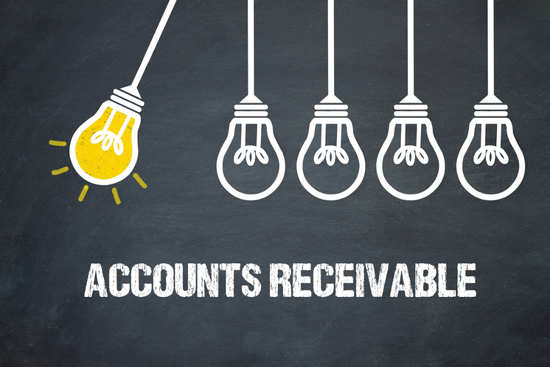
The volume and importance of your accounts receivables balance varies significantly by business type. A hair salon where customers pay at the time of service likely doesn’t have a large amount of accounts receivable. A manufacturing company that ships product before payment, and extends generous payment terms, likely has a
If extending terms, sending invoices, and waiting for payment impacts your cash flow, it’s important that you develop a system to manage your accounts receivable.
Creating a System
Whether it’s in a spreadsheet or accounting software, you’ll need a system to track your A/R. Most businesses divide their invoices due into buckets of 0-30 days, 31-60 days, 61-90 days, and greater than 90 days. Set up a system to track how tardy customers are in paying their bills, preferably one that automatically moves them by due date.
As invoices roll from one bucket to the next - i.e., become further and further past due - the likelihood that you’ll receive payment goes down. This is one of the reasons that monitoring your invoices is so important.
Many accounting software systems generate aged receivables reports. Some will notify you with alerts when invoices become severely past due. As part of your A/R management process, review these reports weekly, bi-weekly or monthly depending on the size of your balances owed and how long they’ve been owed. An accounting or A/R clerk can do this, or the business owner can sit down with their clerk to review the report.
Assess Penalties for Past Due Payments
While you are waiting for the check to arrive, your customer is essentially taking an interest-free loan from you. They are using your products for free, but you have already incurred the costs to produce them. And now you will have to incur additional costs - the hourly wage of an A/R clerk, for example - to get paid.
Assessing penalties that reflect these costs to you can help you recoup them. Whether it’s five percent of the balance owed, or a flat fee of $25 for late payments, clearly state the penalties for late payments on all invoices. And don’t just put them on an invoice - enforce them.
Once a customer has had to pay a late fee charge, they might start paying their invoices on time.
Follow Up on Past Due Invoices
It’s not enough to monitor your past due invoices, you need to follow up on them. Hopefully, customers might have forgotten to pay, or their accounts payable clerk if out on vacation. In some instances, a past due invoice isn’t cause for alarm, particularly if the customer normally pays on time.
That’s why it’s important to follow up on past due invoices. Send an email, resend the invoice, or call the customer and remind them of their obligation. If you don’t follow up, they may continue to keep forgetting to pay.
In online accounting software, you can establish dates for automatic follow up emails. You select either 30, 60, or a custom number of days, and the software will automatically send an email. If you’re both struggling to collect and don’t have the staffing resources to manually send emails or letters, investing in software that does it for you could be worth the money.
Ensure that all communications are polite and professional. Your goal is to get paid, not to lose a customer. Though, sometimes, losing a customer could be the best thing for your business.
Identify Problem Customers
Monitoring, following up, and collecting on past due invoices can take significant time and effort. While you can attempt to cover these costs through the interest and late fee penalties discussed above, at some point it might better serve your business to fire the customer.
When making this decision, look at the volume of their business compared to the effort to collect. Do they only place a $500 order every six months, yet it takes you five emails and two phone calls to get paid? Also consider the length of time they typically take to pay. Waiting 180 days, on average, for payment from a customer could be more trouble than they’re worth.
If a problem customer causes you too many headaches, and the volume and size of their business doesn’t justify keeping them around, consider firing them.
Hiring a Collection Agency
Emails have gone unread, they’re sending your calls straight to voicemail, and the invoice is 180 days past due. Should you hire a collection agency? Before you go down this route, consider the following.
Collection agencies typically charge a percentage of what they collect. This percent ranges from 25% to 50% of the total amount owed. They could also charge a contingency fee.
Terms and rates vary, but paying $250 on a $500 debt just may not be worth it to you. As well, you’ll need to research the agency and make sure they’re licensed and insured and have experience in your industry before assigning them your debt. As hard as it may be, at times it could be necessary to write off a bad debt and simply choose not to work with that customer again.
The best solution is to set up a system to monitor and collect on your accounts receivable before you’d ever have to consider collections. If you need advice or help, talk to your accountant.
